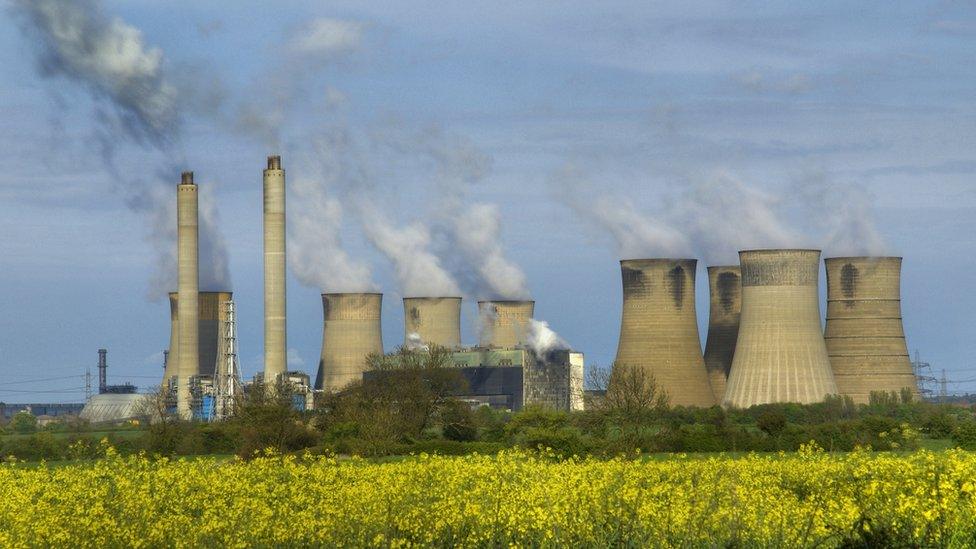UK fires up coal power plant as gas prices soar
- Published
- comments
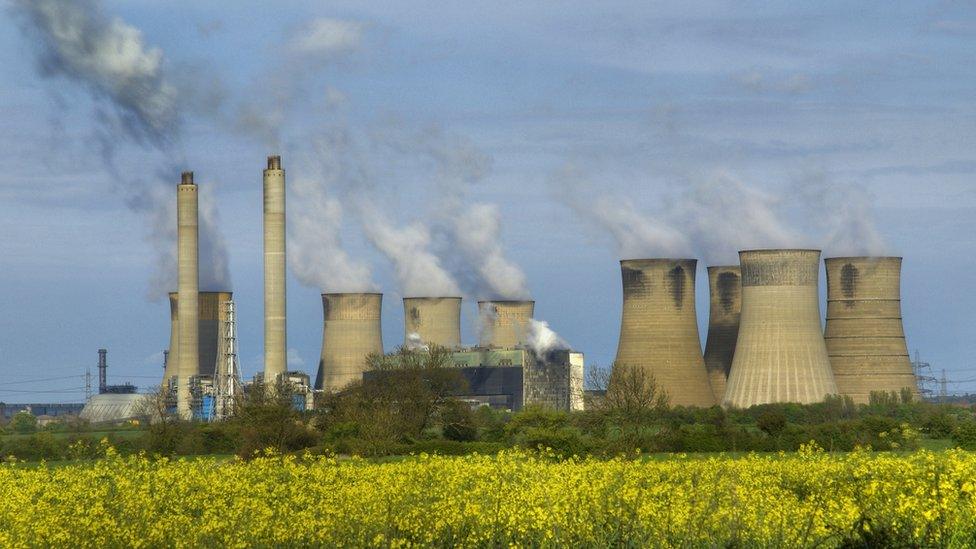
The UK fired up an old coal power plant on Monday to meet its electricity needs.
Warm, still, autumn weather has meant wind farms have not generated as much power as normal, while soaring prices have made it too costly to rely on gas.
As a result, National Grid ESO - which is responsible for balancing the UK's electricity supply - confirmed coal was providing 3% of national power.
It said it asked EDF to fire up West Burton A, which had been on standby.
On Tuesday, the use of coal returned to 2.2%, external of the UK's electricity generation.
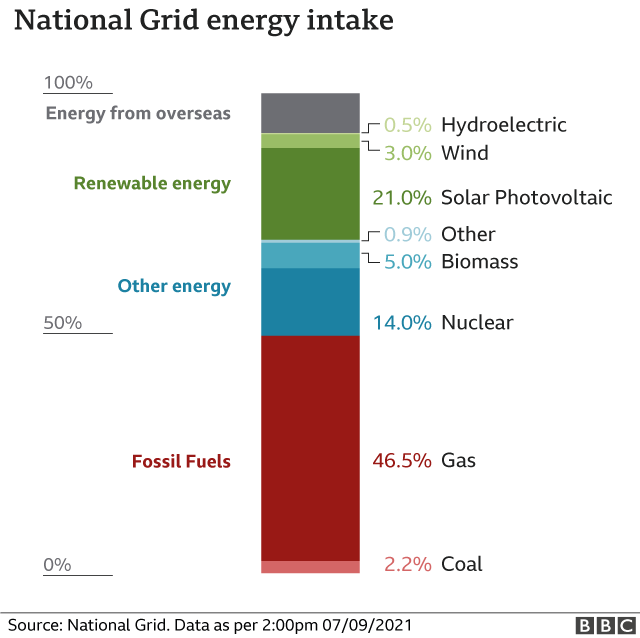
A National Grid ESO spokesman said there had been a three-day coal-free run in mid-August, but the country had relied on some coal power every day since then.
Last year, coal contributed 1.6% of the country's electricity mix. That was down from 25% five years ago.
Both the government and National Grid ESO have committed to phasing out coal power completely by 2024 to cut carbon emissions. However, coal is still used when it is better value than gas.
On track
A small temporary uptick in the use of coal should be kept in perspective, said Dave Jones, electricity analyst at Ember, a think tank promoting the shift away from fossil fuels.
"No-one thought we'd use zero coal this year," he said.
"We're going through a process where year-on-year you're relying on coal less and less. As long as you know you can make it to that fixed date, which is still three years away, it's OK. We're well on track for that journey, probably ahead of schedule."
But higher gas prices could help accelerate the shift from gas to renewables over the next few years, he added.
The UK government has made commitments to reducing the use of gas for power generation, but has not set a fixed deadline.
Record prices
More coal has been burnt this summer in particular, due to soaring prices for natural gas.
Across Europe, shortages and increased demand from Asia have seen the cost of gas increase to the highest level on record, according to Reuters.
A cold start to the year meant countries across the continent dipped into their gas reserves, which would normally be replenished in the summer months when demand tends to be weaker.
But the economic rebound, as countries reopen from Covid-19 lockdowns, meant higher-than-expected demand led to a shortage of gas.

Analysis
by Rebecca Wearn, Business Reporter
Britain's use of coal power on a warm September day raises two big issues.
The first, is that this jars with an environmental commitment to reduce fossil fuel use. The second, is the huge impact global gas prices have on our domestic energy.
Over the coming months, those sky-high gas prices are expected to remain volatile. So, as well as forcing National Grid to make some tough choices about where we get our electricity from, it could also have a big knock-on on what we pay.
The cap on regulated prices will be raised in October, adding £139 to the bills of 15 million households. But that could be just the start.
Now would be a good time for consumers to check what they're paying - and shop around for the best deal - before the winter weather makes this issue more acute.

New nuclear
"In balancing the electricity system, we take actions in economical order and not on the basis of generation type," a National Grid spokesman said.
"Depending on system conditions, some power sources may be better at meeting a balancing requirement than others - so the most cost-effective solution to ensure safe, secure system operation will be sought."
The Nuclear Industry Association said the decision to fire up another coal power plant highlighted the urgent need to invest in new nuclear plants.
"Otherwise, we will continue to burn coal as a fall-back and fall well short of our net zero ambitions," said the trade body's chief executive, Tom Greatrex.
What is climate change?
Related topics
- Published10 June 2020
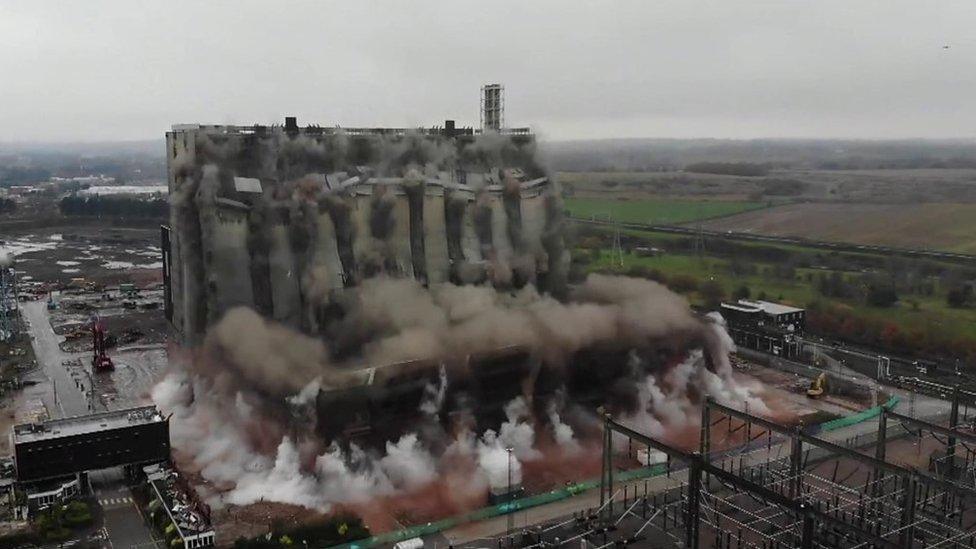
- Published12 March 2020
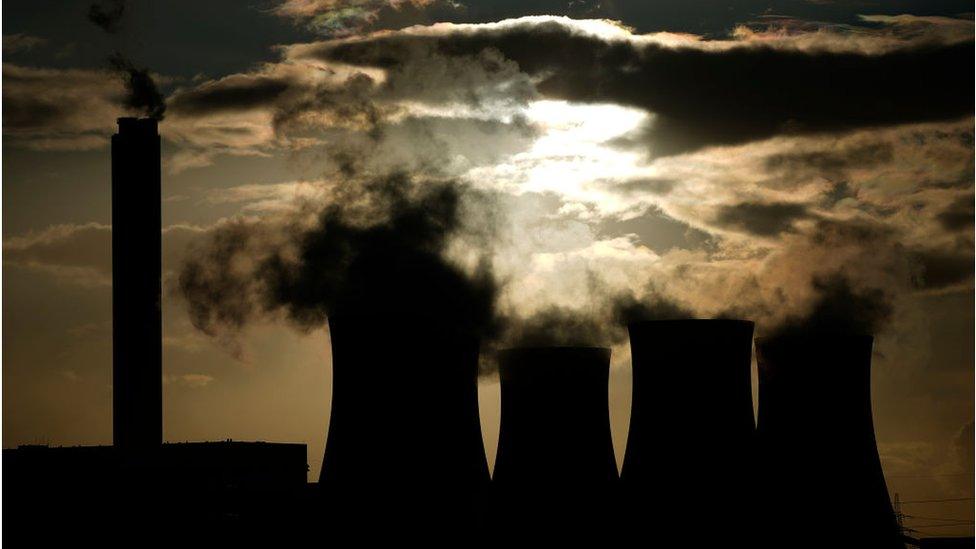
- Published22 March 2021
